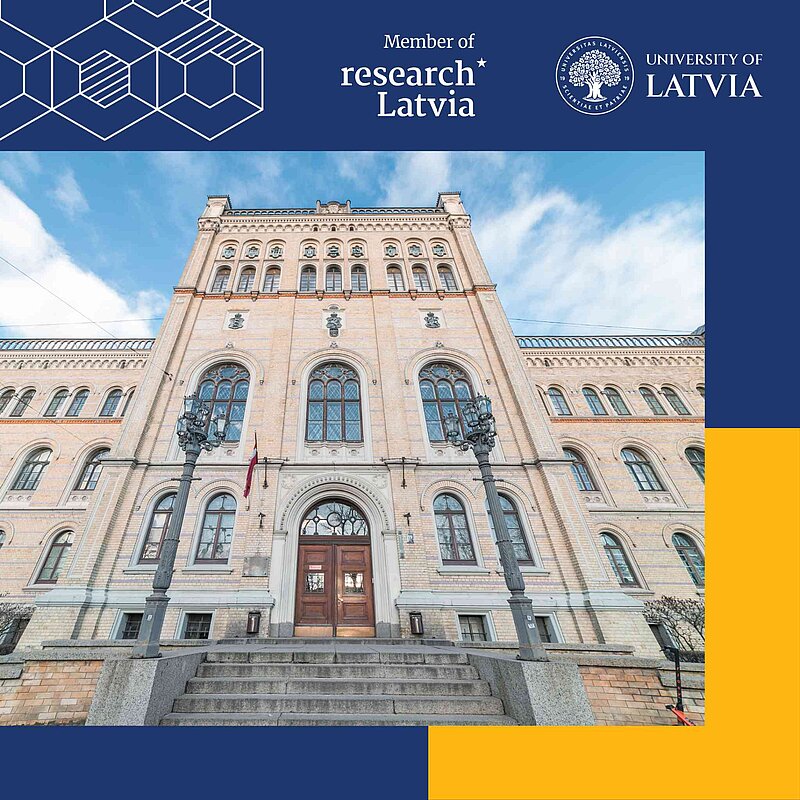
The University of Latvia (UL), founded in 1919, is the leading research university in Latvia, which combines the traditions of classical European higher education with a modern scientific and innovation environment. More than 15 600 students from over 70 countries, six faculties and the BA School of Business and Finance, six regional branches and 28 research institutes form a diverse and internationally recognized academic ecosystem of UL.
This autumn, the research communication brand researchLatvia casts the spotlight upon the significant contribution of UL to research, both nationally and globally. UL is a Member of researchLatvia, serving as its ambassador – this initiative unites 12 leading Latvian research institutions that conduct internationally recognized research and offer scientifically based solutions to society’s needs.
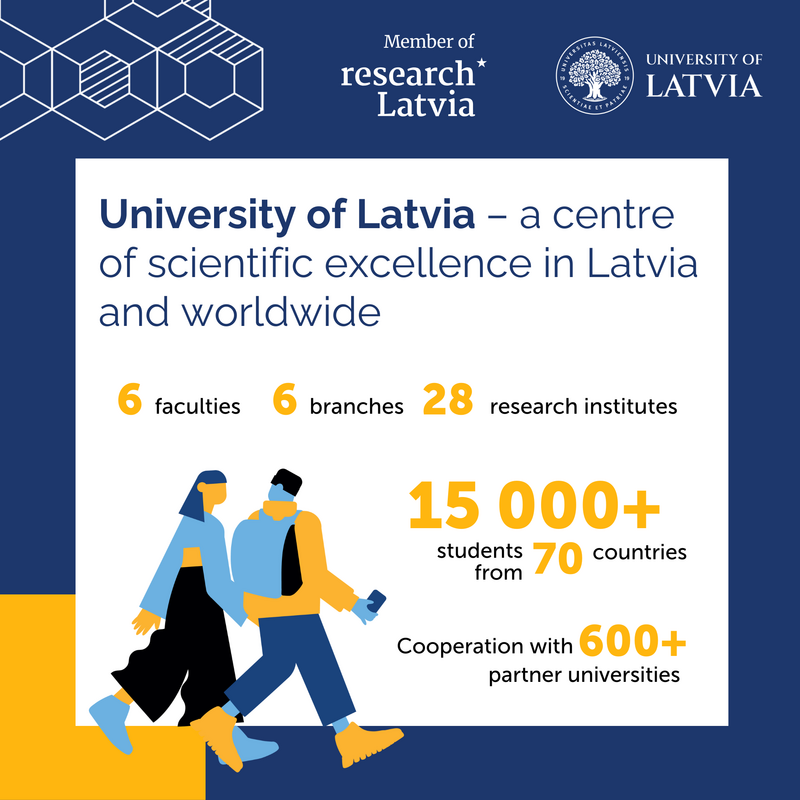
UL operates in four strategic areas of specialization – natural sciences, humanities and arts, medical and health sciences, social sciences. Its research results consolidate Latvia’s competitiveness and provide answers to challenges that are important to society.
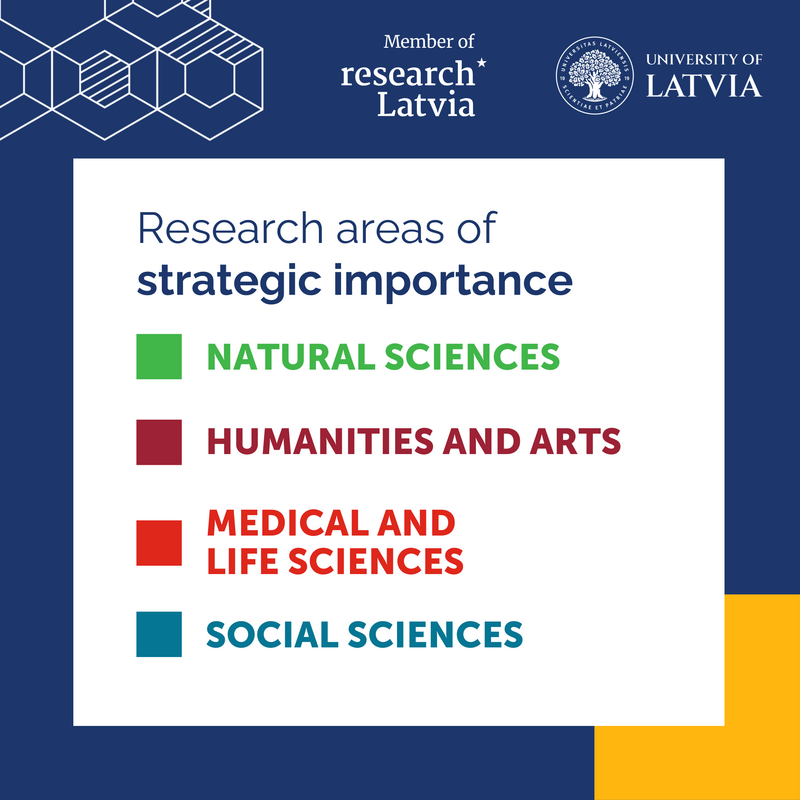
The achievements of UL in research attest to its leadership – more than 300 fundamental and contract-based research projects are being implemented, more than 2000 scientific publications have been published last year, and the research funds raised by UL exceed 50 million euro. The faculties and institutes of UL implement around 45% of research projects in Latvia and actively participate in international programmes such as Horizon Europe, international consortia, which include CERN and EUROfusion, and lead European-wide cooperation projects, for example, EUCanScreen. The volume of research activity reflects the university’s capability to address Latvian, as well as European and global challenges.
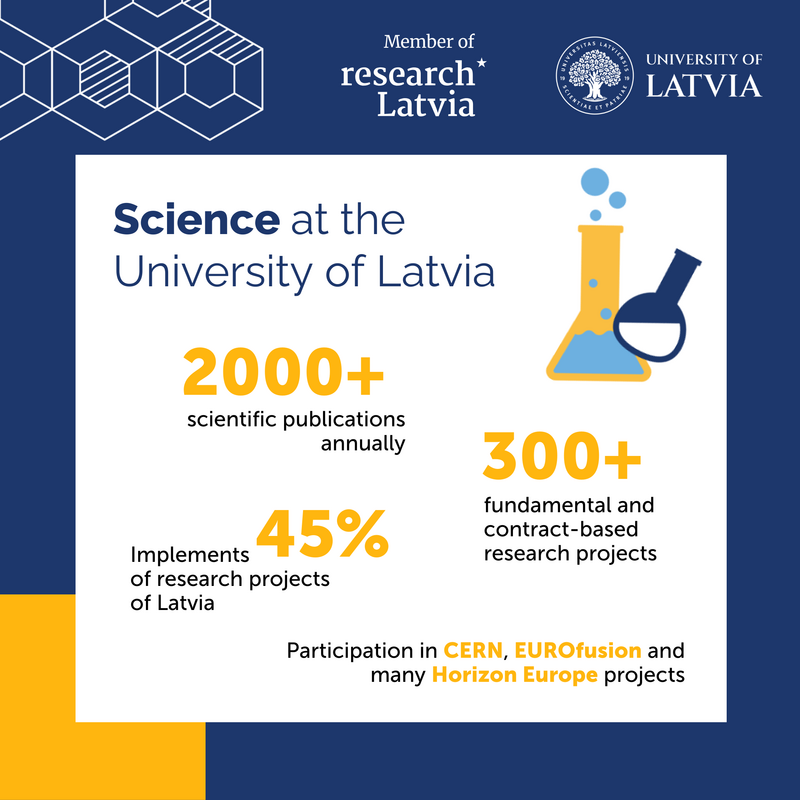
Training researchers is an integral part of the UL mission. The university offers more than 100 study programmes, including over 30 taught in English, providing opportunities for double degrees and studies abroad. Currently, more than 600 doctoral students are enrolled in doctoral studies, and the UL Doctoral School provides them with advanced and supportive academic environment. Young researchers are involved in projects already during their studies, thus creating the basis for scientific continuity and development of innovations.
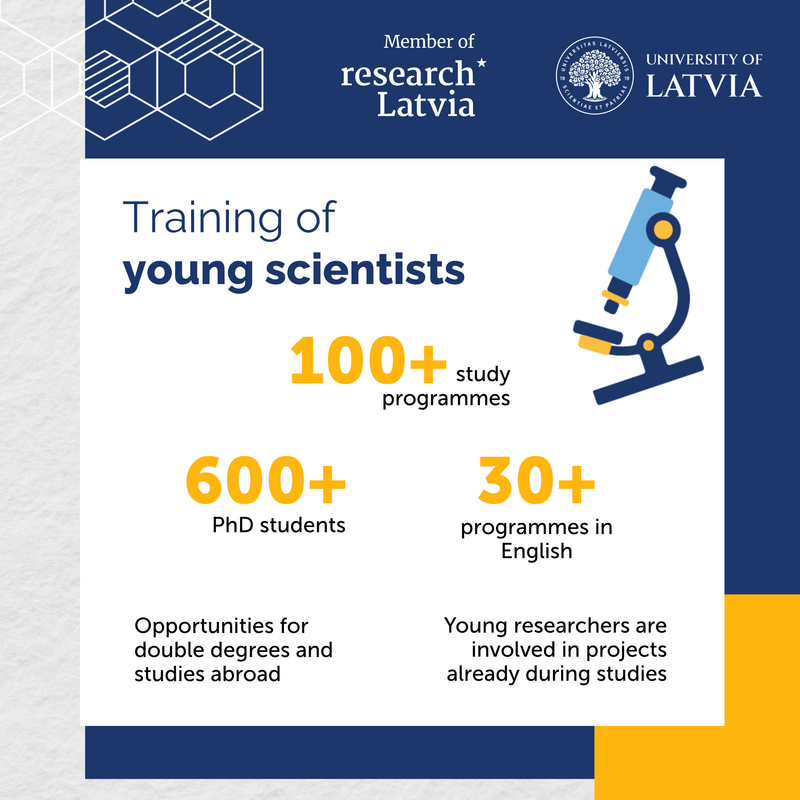
The UL Innovation and Acceleration Centre and OpenLab are the university’s driving forces in collaboration with industry – with over 2 million euro in contract-based research projects and a portfolio of over 90 patents, know-how and trademarks. According to the Times Higher Education University Impact Rankings, UL stands among the world’s 300 most influential universities in the sphere of innovation.
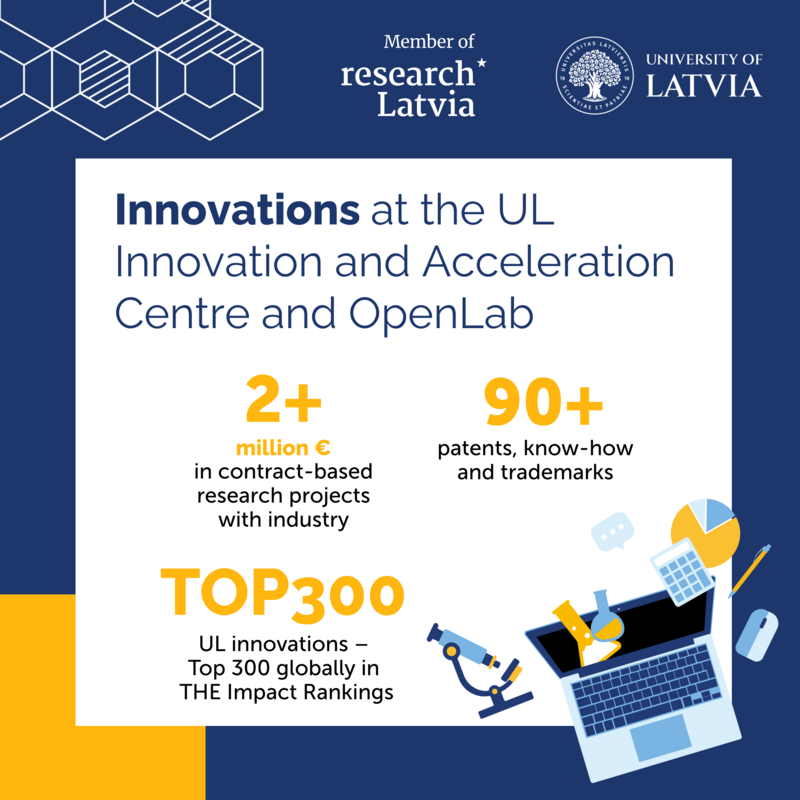
UL holds its scientists and their achievements in highest regard. In 2024, Professor Inta Mieriņa became the second scientist from Latvia to receive a prestigious European Research Council (ERC) grant, studying public attitudes towards migration in the context of war. Professor Vyacheslavs Kashcheyevs continues to advance quantum technology research, and the results of his studies have been published in the prestigious journal Nature this year. Meanwhile, the research dedicated to the history of Latvia by the leading researcher of UL Valdis Bērziņš has enabled the university to become a partner in the prestigious EU-funded MSCA doctoral network project ArCHe (Archaeological Coastal Heritage) exploring coastal archaeological heritage, its past, present and future.
UL continues to reinforce its position in the prestigious world university rankings – QS World University Rankings and Times Higher Education.
By combining academic excellence, international cooperation and practically applicable research, UL consistently honours its motto – For Science and Fatherland, shaping a future where the power of science serves society and human development.

 CONFERENCE
CONFERENCE